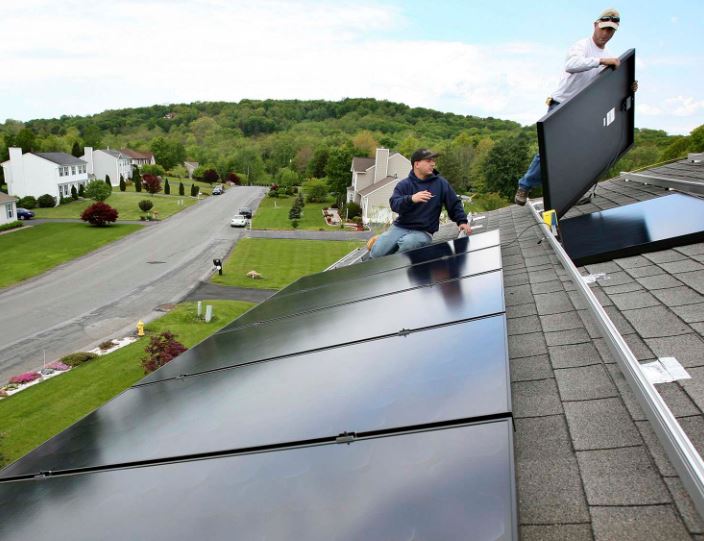Manitoba Hydro's new boss says the electric grid is about to undergo its greatest change since post-Second World War mass electrification, with consumers calling many of the shots with their smartphones.
In her first public address since taking over as president and CEO in February, Jay Grewal told a business crowd in Winnipeg that profound changes in her industry are coming more quickly than we might think.
In a breakfast speech to the Manitoba Chambers of Commerce, Grewal described a future in which consumers have switched to electric vehicles due to rising fossil-fuel costs and have solar panels on the roofs of their homes that send electricity to storage batteries in their basements. When the light fades, a message will appear on their smartphone telling them that the panels are no longer generating energy and their home is now using energy stored in home batteries.
Consumers will still be connected to the Manitoba Hydro grid, and through technology customers will automatically switch to grid power in response to price signals to minimize their energy costs. Their phone app will inform them of their current energy consumption and costs.
The smartphone becomes the smart grid.
"In this vision of the future, energy consumers are also producers. The term that is being coined is prosumers — producer and consumer," Grewal said.
"They buy and sell energy transactionally from the grid, using their batteries to bridge between when the energy is generated and when it needs to be consumed. Batteries allow the prosumer to effectively trade electricity. Individuals will have the ability to trade electricity, buying low and selling high, according to the price signals from the grid," she said.
Grewal said the grid of tomorrow will be vastly different than it is today. "It is a smart grid, backed with sensors and analytics to optimize supply and demand. It is also setting prices dynamically."
Driving the scope and pace of change will be several key factors, such as technological advances, demands for electrifying transportation, the decarbonization of the economy in response to climate change and the changing expectations of consumers.
Competition among new companies that will manage customers' energy through multiple appliances and devices will be fierce, Grewal said.
She predicted that technical advancements will drive down the cost of solar panels and batteries.
"The whole world is desperately hunting for new storage technology. That will create a tipping point in our industry," she said.
Change is already happening. Businesses are planning for a new energy future, she said.
New Flyer, with the assistance of Hydro, is producing electric buses. Tesla is already talking to a major local trucking company about electrifying their entire fleet, Grewal said.
She said Manitoba Hydro, a clean energy producer, is well positioned for the changes that lie ahead, but there will be challenges.
How does it manage a new two-way energy flow in a system that was not designed for that? What technological investments are needed? Does the company have the right skills to embrace the new opportunities and address the challenges?
Grewal said the corporation is working to develop a 20-year strategic plan to address these issues. Hydro has been meeting with a variety of stakeholders for months to get feedback. It hopes to be able to reveal its plan by late winter.
